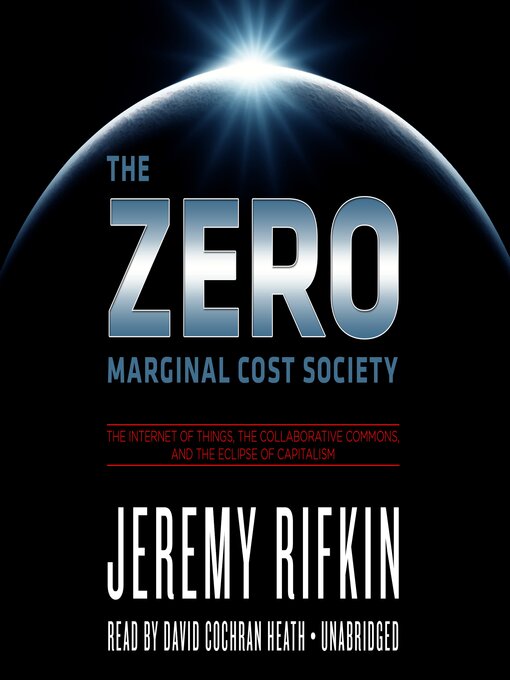In The Zero MarginalCost Society, New York Timesbestselling author Jeremy Rifkin argues that the capitalist era is passing—notquickly, but inevitably. The emerging Internet of Things is giving rise to anew economic system that will transform our way oflife.
In this provocative new book, Rifkin argues that thecoming together of the Communication Internet with the fledgling EnergyInternet and Logistics Internet in a seamless twenty-first-century intelligentinfrastructure—the Internet of Things—is boosting productivity to the pointwhere the marginal cost of producing many goods and services is nearly zero,making them essentially free. The result is that corporate profits arebeginning to dry up, property rights are weakening, and the conventionalmind-set of scarcity is slowly giving way to the possibility of abundance. Thezero marginal cost phenomenon is spawning a hybrid economy—part capitalistmarket and part "collaborative commons"—with far-reaching implications forsociety.
Rifkin describes how hundreds of millions of people arealready transferring parts of their economic lives from capitalist markets towhat he calls the global Collaborative Commons. "Prosumers" are making andsharing their own information, entertainment, green energy, and 3-D printedproducts at near zero marginal cost. They are also sharing cars, homes, clothes,and other items via social media sites, redistribution clubs, andcooperatives at low or near zero marginal cost. Students are even enrolling infree MOOCs, massive open online courses that operate at near zero marginal cost. Andyoung social entrepreneurs are establishing ecologically sensitive businessesusing crowdfunding as well as creating alternative currencies in the newsharing economy. In this new world, social capital is as important as financial capital, access trumps ownership, cooperation supersedes competition, and"exchange value" in the capitalist marketplace is increasingly replaced by"sharable value" on the Collaborative Commons.
Rifkin concludes that while capitalism will be with us forthe foreseeable future, albeit in an increasingly diminished role, it will notbe the dominant economic paradigm by the second half of the twenty-first century.We are, Rifkin says, entering a world beyond markets, where we are learning howto live together in an increasingly interdependent global CollaborativeCommons.


